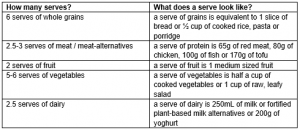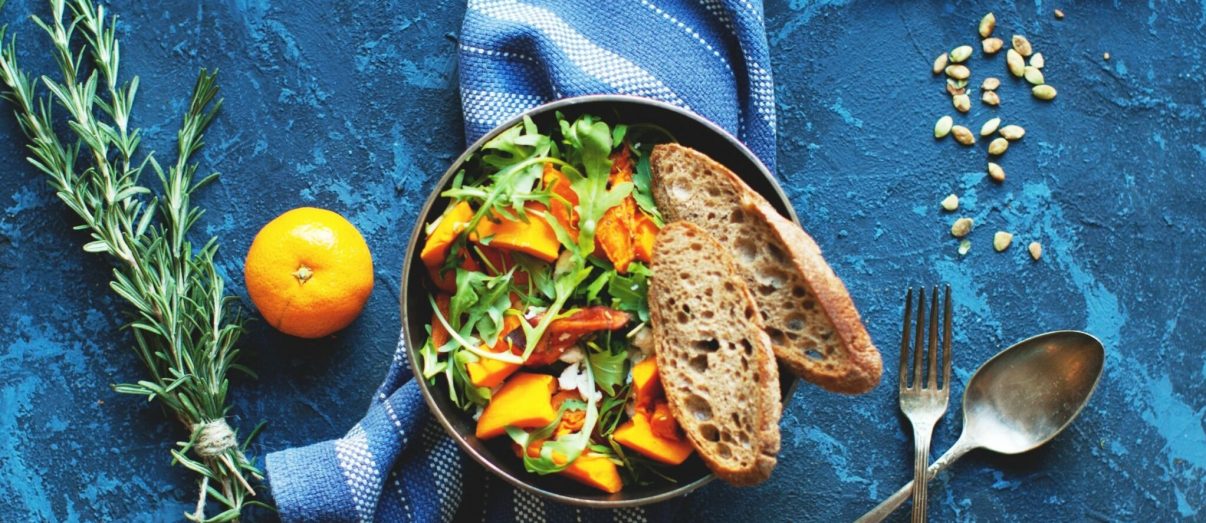When exams are underway, in the fog of study it’s easy to reach for the energy drinks, family-sized pack of Tim-Tams ‘to share with your study mates’ and the large packet of chips.
Whilst a steady supply of caffeine and comfort food is reassuring, it’s important to consider the type of food you eat because it can affect your study performance as well as your long-term health. So, what to eat before an exam to help boost your revision and exam performance?
Whole grains
Whole grain foods are low on the Glycaemic Index (GI) and help maintain steady blood sugar levels. This helps you stay focused during gruelling hours of study and aids concentration on exam day. Foods such as brown rice, wholemeal and grainy breads, wholemeal pasta and rolled oats are great sources of low GI foods. Bear in mind, porridge made from rolled oats is lower GI than ‘instant’ or ‘quick’ varieties so it’s a better source of stable release energy.
Protein
Protein-rich foods are the source of amino acids which are the key constituents for neurotransmitters such as serotonin, norepinephrine and dopamine. These neurotransmitters play an important role in brain function and memory. There are a wide variety of protein rich foods such as meat, fish, dairy-products, legumes and tofu which can be incorporated into your diet.
Some protein-rich foods such as red meat, are high in iron which could help combat iron deficiency and its effects (such as inability to focus and fatigue).
Young women are at higher risk of iron deficiency and should consult a GP if worried about their iron levels.
Fruit
Fruit is high in vitamin C which is vital for your immune system. There’s nothing worse than coming down with a cold just before an exam and being ‘that person’ sniffling and sneezing in the exam hall. Keep your immune system fighting fit by stocking up on fruit high in vitamin C such as oranges, berries and kiwi fruit.
Vegetables
Vegetables are packed with micronutrients which help keep your body’s functions running in top shape. They are also high in fibre, low GI and the dark green, leafy varieties can be a great source of iron.
Pro tip: Increase absorption of plant-based iron by pairing it with foods high in vitamin C. For example, use a lemon juice and extra virgin olive oil dressing with your spinach and kale salad.
Good fats
Since our brains are nearly 60% fat, it stands to reason that the fatty acids we consume can impact our brain performance. Eating foods high in healthy fats such as mono and polyunsaturated fats can help boost cognitive ability. Avoid the dreaded ‘mind blank’ in an exam by adding a little healthy fat to your diet with extra virgin olive oil, nuts, avocado or fatty fish such as salmon, sardines, trout or mackerel.
Water
Although it’s easy to head straight to coffee and energy drinks, the best drink for your body is water. Be wary of having too many caffeinated beverages as it could impact on your sleep. A good night’s sleep is important to give your brain the opportunity to consolidate memories – much needed when trying to learn all that anatomy!
How much?
For adults aged 19-50 years, the Australian Guide to Healthy Eating recommends eating the following daily:

Exam day
Avoid facing an exam on an empty stomach. You want to be able to focus all your attention on the questions in front of you, rather than wondering how long until you can eat. Try to fill up on low GI whole grains, protein-rich foods and some healthy fats to give yourself sustained energy to last the duration of your exam. Consider bringing some snacks like nuts, seeds, dried fruit and plain popcorn to help refuel just before walking into the exam room.
Good luck!
* The information is general and is not intended to serve as advice. DPM Financial Services Group recommends you obtain advice concerning specific matters before making a decision.
Authors
Tiffany Hui – B. NutDiet (Hons) | APD










